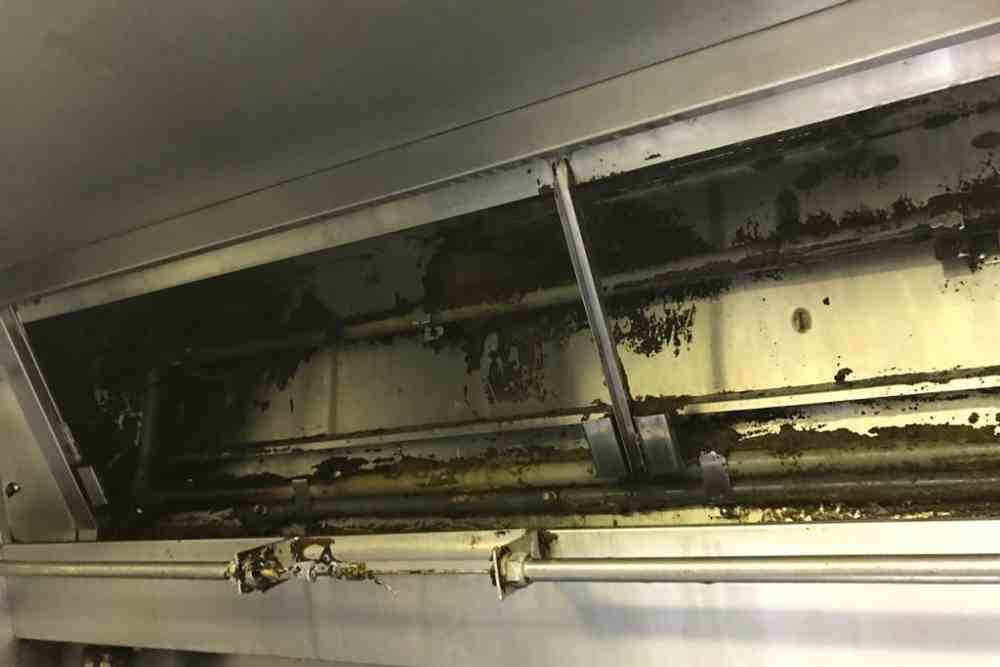Table of Contents
- Grease Fire Prevention with Kitchen Hood Cleaning
- The Importance of Kitchen Hood Cleaning
- The Process of Kitchen Hood Cleaning
- The Benefits of Professional Hood Cleaning Services
- Frequently Asked Questions
- 1. How often should kitchen hoods be cleaned?
- 2. Can I clean my kitchen hood myself?
- 3. How much does kitchen hood cleaning cost?
- 4. Are there any regulations regarding kitchen hood cleaning?
- 5. Can a dirty kitchen hood affect the performance of other kitchen equipment?
- Summary
Grease Fire Prevention with Kitchen Hood Cleaning

Grease fires are a common and dangerous occurrence in kitchens, especially in commercial establishments. These fires can spread rapidly and cause significant damage to property, as well as pose a serious threat to the safety of individuals present. One effective way to prevent grease fires is through regular kitchen hood cleaning. In this article, we will explore the importance of kitchen hood cleaning in grease fire prevention, the process involved in cleaning kitchen hoods, and the benefits of professional hood cleaning services.
The Importance of Kitchen Hood Cleaning
Kitchen hoods play a crucial role in maintaining a safe and healthy environment in commercial kitchens. They are designed to remove smoke, heat, and grease-laden vapors generated during cooking. However, over time, these hoods can become clogged with grease, which reduces their efficiency and increases the risk of grease fires.
Regular kitchen hood cleaning is essential for several reasons:
- Fire Prevention: The primary purpose of kitchen hood cleaning is to prevent grease fires. Grease buildup in the hood and exhaust system can ignite easily and spread rapidly, leading to a potentially catastrophic fire. By keeping the hood clean, the risk of fire is significantly reduced.
- Improved Air Quality: A clean kitchen hood ensures that smoke, odors, and harmful pollutants are effectively removed from the kitchen. This helps maintain a healthy working environment for kitchen staff and prevents the spread of unpleasant smells to other areas of the establishment.
- Compliance with Regulations: Many jurisdictions have specific regulations and codes in place that require regular kitchen hood cleaning. Failure to comply with these regulations can result in fines, penalties, and even closure of the establishment.
- Extended Equipment Lifespan: Grease buildup not only affects the hood but also impacts the performance and lifespan of other kitchen equipment, such as exhaust fans and ductwork. Regular cleaning helps prevent costly repairs and replacements.
The Process of Kitchen Hood Cleaning
Kitchen hood cleaning involves a thorough and systematic process to ensure the removal of grease and other contaminants. While the specific steps may vary depending on the service provider, the general process typically includes the following:
- Inspection: A professional hood cleaning technician will inspect the entire hood system to identify any areas of concern or potential issues.
- Preparation: The technician will cover and protect surrounding areas to prevent any damage or mess during the cleaning process.
- Grease Removal: The technician will use specialized cleaning agents and tools to remove grease buildup from the hood, filters, exhaust fans, and ductwork.
- Thorough Cleaning: All accessible parts of the hood system will be thoroughly cleaned, including the interior and exterior surfaces, as well as the grease collection trays.
- Final Inspection: Once the cleaning is complete, a final inspection will be conducted to ensure that all grease and contaminants have been effectively removed.
It is important to note that kitchen hood cleaning should be performed by trained and certified professionals who have the necessary knowledge and equipment to carry out the task safely and effectively.
The Benefits of Professional Hood Cleaning Services
While some establishments may attempt to clean their kitchen hoods in-house, there are several benefits to hiring professional hood cleaning services:
- Expertise and Experience: Professional hood cleaning technicians have the expertise and experience to thoroughly clean and maintain kitchen hoods. They are familiar with the latest industry standards and regulations, ensuring compliance and optimal performance.
- Efficiency and Time Savings: Cleaning a kitchen hood system can be a time-consuming task, especially for those without the necessary training and equipment. Professional services can complete the job efficiently, allowing kitchen staff to focus on their primary responsibilities.
- Reduced Risk of Damage: Improper cleaning techniques or the use of harsh chemicals can damage the hood system and other kitchen equipment. Professional cleaners use safe and effective methods to minimize the risk of damage.
- Comprehensive Cleaning: Professional hood cleaning services provide a thorough and comprehensive cleaning of the entire hood system, ensuring that all grease and contaminants are removed. This helps maintain optimal performance and extends the lifespan of the equipment.
- Documentation and Compliance: Professional cleaners provide documentation of the cleaning process, which can be crucial for demonstrating compliance with regulations and codes during inspections.
For professional kitchen exhaust hood cleaning services in Ontario, visit Ontario Hood Cleaning.
Frequently Asked Questions

1. How often should kitchen hoods be cleaned?
Kitchen hoods should be cleaned regularly to prevent grease buildup and reduce the risk of fire. The frequency of cleaning depends on various factors, including the type of cooking, volume of food preparation, and local regulations. As a general guideline, commercial kitchens should have their hoods cleaned at least every three to six months.
2. Can I clean my kitchen hood myself?
While it is possible to clean a kitchen hood yourself, it is highly recommended to hire professional hood cleaning services. Professional cleaners have the necessary expertise, equipment, and knowledge of industry standards to ensure a thorough and safe cleaning process.
3. How much does kitchen hood cleaning cost?
The cost of kitchen hood cleaning can vary depending on factors such as the size of the hood system, the level of grease buildup, and the location of the establishment. It is best to contact professional hood cleaning services for a customized quote based on your specific requirements.
4. Are there any regulations regarding kitchen hood cleaning?
Yes, many jurisdictions have specific regulations and codes in place that require regular kitchen hood cleaning. These regulations aim to ensure the safety and health of individuals working in commercial kitchens, as well as prevent the risk of fire. It is important to comply with these regulations to avoid fines, penalties, and potential closure of the establishment.
5. Can a dirty kitchen hood affect the performance of other kitchen equipment?
Yes, a dirty kitchen hood can significantly impact the performance and lifespan of other kitchen equipment, such as exhaust fans and ductwork. Grease buildup can restrict airflow, leading to reduced efficiency and increased energy consumption. Regular hood cleaning helps maintain optimal performance and extends the lifespan of the entire hood system.
Summary
Kitchen hood cleaning is a critical aspect of grease fire prevention in commercial kitchens. Regular cleaning not only reduces the risk of fire but also improves air quality, ensures compliance with regulations, and extends the lifespan of kitchen equipment. Professional hood cleaning services offer expertise, efficiency, and comprehensive cleaning, providing a safe and healthy environment for kitchen staff and patrons.
For professional kitchen exhaust hood cleaning services in Ontario, visit Ontario Hood Cleaning.
- Grease Fire Prevention with Kitchen Hood Cleaning
- hood cleaning
- kitchen exhaust cleaning
- restaurant hood cleaning






